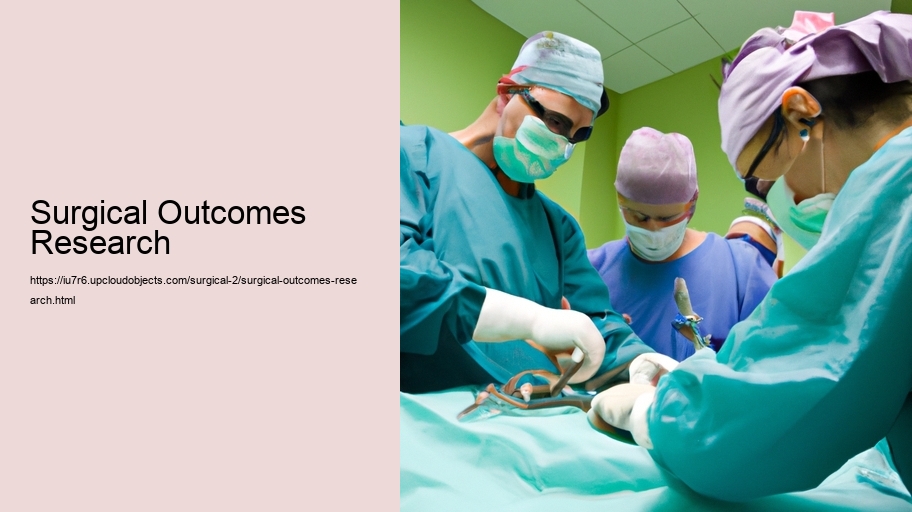Surgical Outcomes Research: A Cornerstone for Advancing Patient Care
The realm of medicine is an ever-evolving field, one that continually seeks to refine and enhance the care provided to patients. Within its broad spectrum lies the critical domain of surgical outcomes research, a discipline that systematically examines the results of surgical interventions to ensure the best possible patient outcomes. This essay delves into the importance of this research, its methodologies, and the impact it has on healthcare delivery.
At its core, surgical outcomes research is a quest for understanding. It seeks to answer pivotal questions: How well do patients fare after surgery? What factors contribute to their recovery? Are there ways to predict and improve their results? These inquiries are not mere academic exercises; their answers have profound implications for patient care, resource allocation, and the overall effectiveness of healthcare systems.
Surgical outcomes research often begins with the identification of measurable endpoints. These outcomes can be divided into several categories, such as clinical outcomes, which include rates of infection, complications, mortality, and the success of the surgical procedure itself. Patient-reported outcomes, on the other hand, focus on the patient's perspective, assessing aspects such as pain, function, and quality of life. Economic outcomes consider the cost-effectiveness of surgical interventions, analyzing the balance between the expense of the procedures and the health benefits they bring.
The methodologies employed in surgical outcomes research are diverse and rigorous. Randomized controlled trials (RCTs), considered the gold standard of clinical research, compare surgical techniques or treatment protocols to determine the most effective approaches. Observational studies, on the other hand, can offer insights into the real-world application of surgical procedures, monitoring outcomes over time in various patient populations. Big data analytics and registries have also become invaluable tools, allowing researchers to examine vast amounts of information to uncover trends and patterns that might otherwise go unnoticed.
One of the greatest strengths of surgical outcomes research is its capacity to drive improvement. By identifying the variables that lead to better patient outcomes, healthcare professionals can standardize best practices and develop guidelines that elevate the quality of care. For instance, through such research, it was discovered that administering antibiotics before certain surgeries can significantly reduce infection rates. This finding has since become a standard of care, drastically improving patient outcomes across the globe.
Furthermore, surgical outcomes research fosters a culture of accountability and transparency. In today's healthcare environment, where patients are increasingly informed and involved in their care decisions, the availability of outcomes data empowers them to make more educated choices about their treatments. Surgeons and hospitals are likewise encouraged to maintain high standards and continuously seek ways to improve their outcomes.
The impact of surgical outcomes research extends beyond the individual patient. By examining the cost-effectiveness of various surgical interventions, this research informs policy decisions, guiding resource allocation to ensure that healthcare systems can provide high-quality care while maintaining financial sustainability. In this way, surgical outcomes research serves as a bridge between clinical practice and health policy, ensuring that both domains are aligned with the overarching goal of enhancing patient well-being.
In conclusion, surgical outcomes research is an indispensable component of modern healthcare. Its commitment to understanding and improving the results of surgical care not only advances the field of surgery but also ensures that patients receive the best possible treatment. As this research continues to evolve, incorporating new technologies and methodologies, its role in shaping the future of surgery and patient care remains as vital as ever. It is through this relentless pursuit of knowledge that we can continue to push the boundaries of what is possible in medicine, enhancing the lives of patients around the world.
